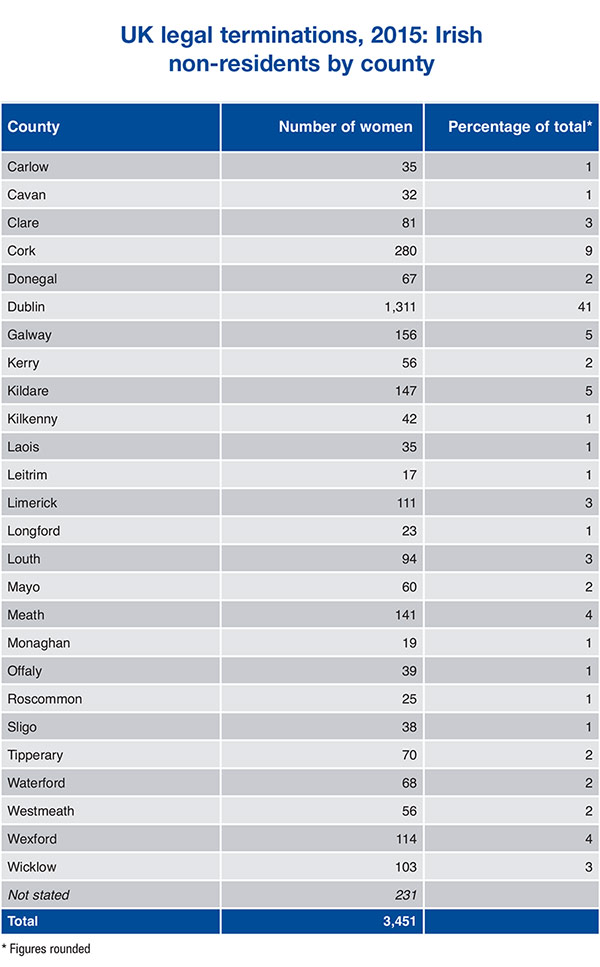Prolonging the Eighth


A proposed repeal of the Eighth Amendment has gathered pace in the public discourse. A referendum now seems inevitable. However, the timing is as uncertain as ever. eolas reports.
Article 40.3.3 of Bunreacht na hÉireann, most commonly referred to as the Eighth Amendment of the Constitution, underpins a constitutional ban on abortion in Ireland.
The judicious wording of the Amendment indicates: “The State acknowledges the right to life of the unborn and, with due regard to the equal right to life of the mother, guarantees in its laws to respect, and, as far as practicable, by its laws to defend and vindicate that right.”
A referendum is required in order to make a modification to the Constitution, with the prerequisite that the associated Bill must also receive passage through both houses of the Oireachtas. The Eighth Amendment was endorsed by 66.9 per cent of the 1,265,994 voters (53.7 per cent of the eligible electorate) who participated in the September 1983 referendum.
Subsequently, in November 1992, a series of three referenda were simultaneously held. The Thirteenth and Fourteenth Amendments explicitly provided for the right of an individual to leave the country in order to obtain an abortion or to receive information concerning the availability of abortion in jurisdictions outside of Ireland. As a result, Article 40.3.3 is now accompanied by dual caveats which affirm: “This subsection shall not limit freedom to travel between the State and another state,” and “This subsection shall not limit freedom to obtain or make available, in the State, subject to such conditions as may be laid down by law, information relating to services lawfully available in another state.” A third proposal, the Twelfth Amendment, which outlined that “a risk of self-destruction” should be excluded from the agreed rationale for acceptable recourse to abortion, was rejected by the electorate.
Legislation
The legislative status of abortion in Ireland was reformed in 2013. Then Health Minister James Reilly proposed what would become the Protection of Life During Pregnancy Act (2013) on behalf of the Fine Gael-Labour coalition. This legislation allows for an abortion to take place in three broad scenarios: the risk of loss of life from physical illness; the risk of loss of life from physical illness in emergency; and the risk of loss of life from suicide. Sections 58 and 59 from the longstanding Offences Against the Person Act (1861) were superseded by the 2013 legislation. As of July 2016, the Department of Health confirmed that 26 terminations were conducted under provision of the new legislation in 2015, mirroring the figure for the previous year.
Meanwhile, however, abortion remains illegal in the case of incest, rape and fatal foetal abnormality. It is also unlawful to encourage or advocate abortion on an individual case basis, while information about abortion services available outside of the jurisdiction may be disclosed under certain parameters. This information can be provided by doctors, agencies or individual counsellors.
As such, according to figures released by the UK Department of Health, women from every county and region on the island of Ireland, account for 83 per cent of non-resident terminations in England and Wales. In 2015 alone, 3,451 women from Ireland (67 per cent) and 833 from the Northern Ireland (16 per cent) travelled to Britain to undergo an abortion procedure. The statistics indicate that, between 1980 and 2015, at least 165,438 women travelled from the Republic of Ireland to the UK to obtain access to abortion services.

Debate
Earlier this year, Health Minister Simon Harris voiced his support for a referendum regarding the Eighth Amendment. Meanwhile, the Citizens’ Assembly, a 100-member body and successor to the Constitutional Convention, was newly established to produce reports on topical issues which could then be considered by the Oireachtas. Following its inaugural meeting it was decided that the Assembly should select the Eighth Amendment as a priority consideration during its four initial working meetings. Taoiseach Enda Kenny has indicated that it could take up to six months for the Assembly to make its recommendations.
These ongoing deliberations led the Government to reject an AAA-PBP Bill calling for the repeal of Article 40.3.3. A Government press release states: “Dáil Éireann declines to give the Bill a second reading in order that the Citizens’ Assembly, established by Resolutions of Dáil Éireann and Seanad Éireann, may conclude its deliberations on the Eighth Amendment of the Constitution, which is the subject matter of this Bill, and report to the Oireachtas in the first half of 2017.”
Once compiled, the report will then be referred to a Special Oireachtas Committee which is subsequently required to respond to the recommendations within six months. It appears likely, therefore, that Government proposals will not be brought before the Dáil until 2018 at earliest. Indeed, the fractured nature of the minority Government could mean that any opportunity for a referendum within the lifetime of the current Dáil will rest upon precarious ground. A potentially delicate issue for the Cabinet now looks likely to be placed on the backburner for the immediate future.





